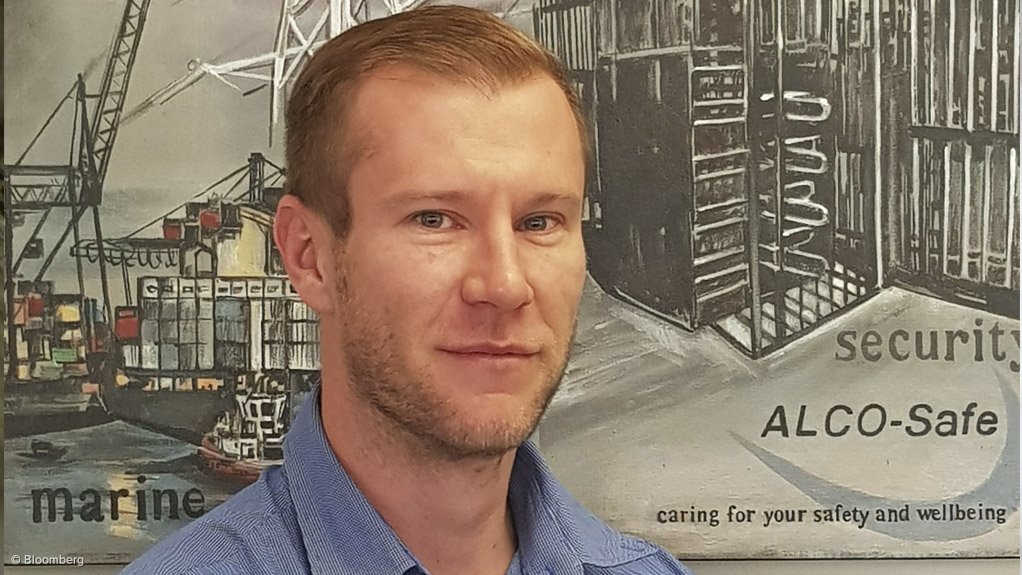Alcohol abuse long-standing issue, drug abuse growing



SUBSTANTIAL PROBLEM Substance abuse is not only prevalent in the general mining workforce; alcohol abuse is also common among management who prefer more expensive drugs, such as cocaine
RHYS EVANS Substance abuse is not going away and the only way to deal with it is to put in place the necessary controls and programmes
Growing drug and alcohol abuse at mines in South Africa is especially prevalent in newer mining areas, such as the North West, where living arrangements of the general workforce foster such behaviour, drug and alcohol testing equipment and accessories company Alco-Safe director Rhys Evans informs Mining Weekly.
While mining operations in Johannesburg have managed to curb this through entrenched compulsory alcohol and drug tests, those in other provinces have been unable to properly address this behaviour, which poses great risk to the health and safety of personnel on mining operations.
Although newer mining areas are slowly adopting these measures, they have not had the same luxury of time. “People in newer mining areas are still learning about how vast the substance abuse problem in mining is and what is involved in testing for drugs and alcohol,” Evans notes. Therefore, these mines are, unfortunately, still generating a high number of positive tests, as workers try to cheat the tests or come into work drunk because they do not understand the alcohol consumption limit.
The hostel-like living conditions of some new mines, far from big cities and employing mostly male migrant workers, contribute to alcohol and drug abuse. When a mineworker returns from his shift, he often has to deal with peers who are drinking alcohol and using drugs; influenced by boredom, stress, peer pressure or a lack of physical family responsibility, and also begins to participate.
Alcohol and drug abuse can be reduced by understanding and addressing these precipitating factors through proper controls and programmes, says Alco-Safe.
The effectiveness of Alco-Safe solutions is evident at coal mines in Mpumalanga, operating since the 1970s, where Evans says the company has been conducting awareness programmes since the 1990s. These mining operations average only two positive tests for drugs and alcohol a month, compared with newer mines that average 60 positive tests, and where Alco-Safe programmes have been implemented only in the past two years.
Evans points out that alcohol abuse has been a long-standing problem in the mining industry, while drug use is steadily growing and exacerbated by drug dealers who are aware of the drinking problem and latch onto soft targets.
Dagga use is increasing rapidly, as it is becoming more acceptable by society, with nyaope, which comprises a mixture of heroin, antiretrovirals and dagga, becoming a big problem at mines, as a result of the increasing tolerance of dagga by users. “Those smoking nyaope don’t really realise what they’re doing because they’re unaware that it is such a strong drug. They are influenced by their peers, who liken it to dagga without full disclosure,” he explains. Nyaope is also extremely addictive.
However, substance abuse is not only prevalent in the general mining workforce; alcohol abuse is also common among management, who have to contend with deadlines and cost pressures, and prefer more expensive drugs, such as cocaine, notes Evans.
Implementing Controls
Mine sites enforce a zero-tolerance limit for alcohol and drugs as mandated by the South African Mine Health and Safety Act, of 1996, and regulation 4.7.1 of the Minerals Act, No 50, of 1991, which stipulate that any person in a state of intoxication or in a state likely to render him or her incapable of caring for himself or herself or others in his or her charge, is not allowed to enter a mine.
Repercussions for testing positive for alcohol or drug abuse differ at mines. Some mines are strict, with the onus on the employee to come forward and request assistance if he/she has a problem, and the company subsequently providing rehabilitation. Alternatively, employees have to report whether they drank too much before a shift and are unable to work, as getting caught not declaring this would lead to immediate dismissal. Other mines are less stringent, firstly issuing a warning, followed by a final written warning and then dismissal.
However, most mines have some type of employee assistance programme in place and will attempt to assist with rehabilitation. Should a worker continue to transgress following rehabilitation – for which the company bears the cost – the company will dismiss the employee.
While repercussions may seem untenable to some, Evans emphasises that they are necessary because controls have to be in place to ensure compliance. This is especially important because of the high-risk mining environment, where one mistake can cost many lives, result in work stoppages and, ultimately, the loss of income for the mine.
Subsequently, alcohol testing is indiscriminate – every person, from a general mineworker to senior management and visitors, is obliged to take a breathalyser test – and is conducted whenever an individual enters a mine site.
The positive effect of alcohol and drug testing is a decrease in absenteeism, as sober workers are healthier, less susceptible to illnesses and are less likely to miss a shift because of the after-effects of drinking or using drugs, Evans acclaims.
The attitude of workers also improves, as “alcohol and drug use produces a high, which is followed by feeling low, causing mood swings” and impacts negatively on finances, which induces stress, he explains.
Evans emphasises the importance of maintaining a consistent approach to tests and programmes, even after establishing a sober culture to ensure that regression does not occur.
Solutions of Substance
Alco-Safe supplies equipment for alcohol and drug testing to mining companies, and assists in implementing substance abuse policies and procedures to ensure that the equipment is used correctly.
The company also conducts awareness programmes for companies, either through presentations or educational booklets, outlining the effects of alcohol and drugs in the workplace. Evans indicates that this, combined with testing, generates the most success in reducing substance abuse.
“We can see that, with time and education, a really big difference is achieved. The older mines had similarly high levels of abuse, but achieved a significant reduction following the implementation of Alco-Safe’s programmes.
“Substance abuse is not going away and the only way to deal with it is to put in place the necessary controls and programmes, and get assistance from a company that can implement the correct programmes, conduct training and supply high-quality testing equipment that will produce credible results that are admissible in a disciplinary hearing,” he concludes.
Comments
Press Office
Announcements
What's On
Subscribe to improve your user experience...
Option 1 (equivalent of R125 a month):
Receive a weekly copy of Creamer Media's Engineering News & Mining Weekly magazine
(print copy for those in South Africa and e-magazine for those outside of South Africa)
Receive daily email newsletters
Access to full search results
Access archive of magazine back copies
Access to Projects in Progress
Access to ONE Research Report of your choice in PDF format
Option 2 (equivalent of R375 a month):
All benefits from Option 1
PLUS
Access to Creamer Media's Research Channel Africa for ALL Research Reports, in PDF format, on various industrial and mining sectors
including Electricity; Water; Energy Transition; Hydrogen; Roads, Rail and Ports; Coal; Gold; Platinum; Battery Metals; etc.
Already a subscriber?
Forgotten your password?
Receive weekly copy of Creamer Media's Engineering News & Mining Weekly magazine (print copy for those in South Africa and e-magazine for those outside of South Africa)
➕
Recieve daily email newsletters
➕
Access to full search results
➕
Access archive of magazine back copies
➕
Access to Projects in Progress
➕
Access to ONE Research Report of your choice in PDF format
RESEARCH CHANNEL AFRICA
R4500 (equivalent of R375 a month)
SUBSCRIBEAll benefits from Option 1
➕
Access to Creamer Media's Research Channel Africa for ALL Research Reports on various industrial and mining sectors, in PDF format, including on:
Electricity
➕
Water
➕
Energy Transition
➕
Hydrogen
➕
Roads, Rail and Ports
➕
Coal
➕
Gold
➕
Platinum
➕
Battery Metals
➕
etc.
Receive all benefits from Option 1 or Option 2 delivered to numerous people at your company
➕
Multiple User names and Passwords for simultaneous log-ins
➕
Intranet integration access to all in your organisation



















